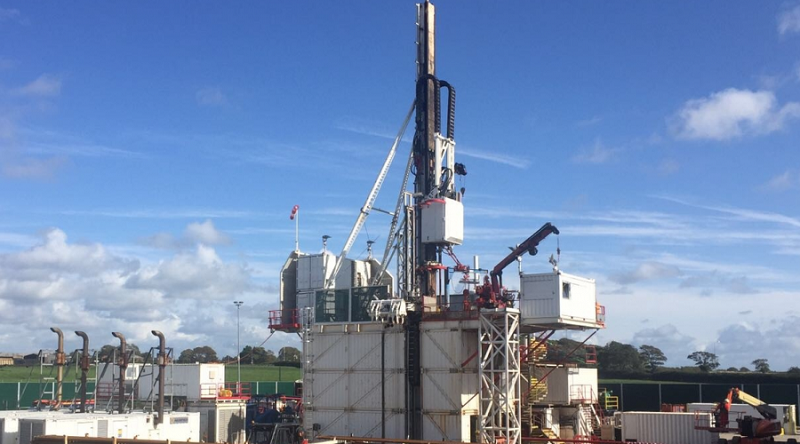
British oil and gas exploration company Cuadrilla has paused fracking operations at its Preston New Road site in Lancashire following an earth tremor on 21 August 2019.
The microseism was detected at 8:46pm by Cuadrilla’s monitoring system. The tremor measured 1.55ML on the Richter scale, higher than the previously recorded 1.5ML tremor at the site and in breach of the UK government’s 0.5ML threshold on seismic activity.
A Cuadrilla spokesperson said: “We can confirm that a microseismic event measuring 1.55ML (local magnitude) on the Richter scale occurred after we had completed the hydraulic fracturing programme for the day at our Preston New Road site.
“Most local people will not have felt it due to its small size. The equivalent ground motion would be similar to a large bag of shopping dropping to the floor. Well integrity has been verified and we will now pause operations and continue monitoring for the next 18 hours.
“The Preston New Road exploration site is the most regulated and monitored site in Europe and the systems in place are working as they should. Minor movements of this level are to be expected and are way below anything that can cause harm or damage to anyone or their property. All the relevant regulators were informed and we have verified that the well integrity is intact.”
The UK government authorised the resumption of fracking at Preston New Road on 15 August 2019 as part of a show of support for fracking, which may include a shift to relax fracking regulations.

US Tariffs are shifting - will you react or anticipate?
Don’t let policy changes catch you off guard. Stay proactive with real-time data and expert analysis.
By GlobalDataA UK Department for Business, Energy and Industrial Strategy spokesperson said: “Shale gas could be an important new domestic energy source reducing the level of gas imports while delivering broad economic benefits, including through the creation of well-paid, quality jobs. It could also support our transition to net zero emissions by 2050.”
However, recent research carried out at Nottingham University indicates that fracking in the UK is less viable than previously assumed due to shale reserves being significantly smaller than originally expected.
Welcoming this latest research, Herriot-Watt University Professor John Underhill, who first challenged shale gas estimates in 2017, said: “This research is an important next step in the discussion around the UK’s reliance on shale gas extraction as a solution to our current energy crisis.
“In 2017, our research revealed that the UK’s geology is unlikely to be suitable for hydraulic fracturing because the uplift and faulted structure of the basins are detrimental to its ultimate recovery.”
However, despite his concern and large protests ran predominantly by the Frack Off group, the UK government and Cuadrilla are continuing to pursue fracking of shale gas in the UK indefinitely.



